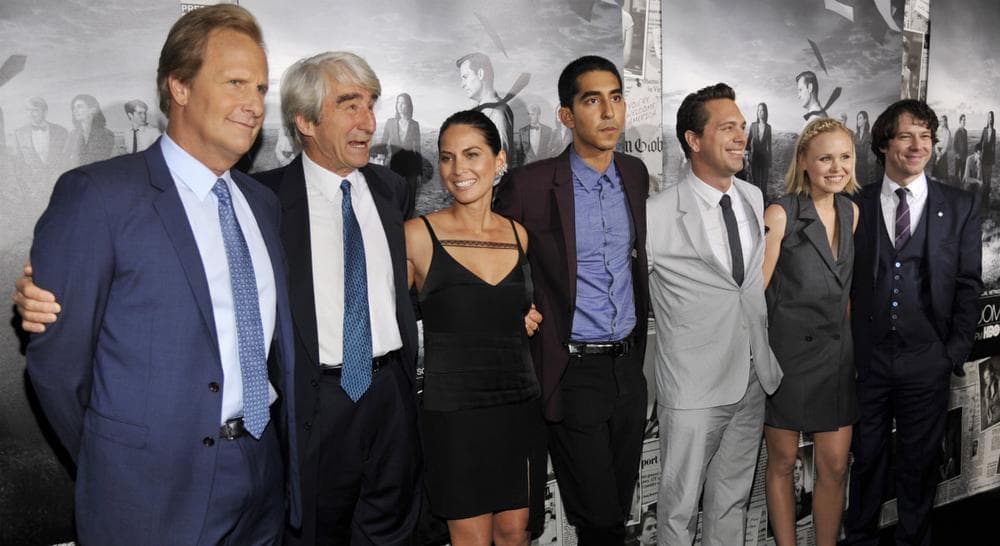Advertisement
'The Newsroom,' Season 2, Ep. 1: HBO Journodrama Jumps The Snark
[Warning: Spoilers ahead.]
The first thing you need to know about HBO’s “The Newsroom” (which had its Season Two premiere Sunday night) is that creator/writer/producer Aaron Sorkin pays Chris Matthews for advice. The MSNBC media savant is one of a baker’s dozen journalists that Sorkin has called upon to help him inject realism into the show.
More like surrealism, as exemplified by this trailer:
Sort of like Georgia O’Keefe meets the 24-hour news cycle. The “together they stand alone” tagline refers, presumably, to the legal rumpus brought down upon their fictional "News Night" show by a botched report alleging “the U.S. committed war crimes in a black op named 'Genoa.'"
(The storyline has CNN’s 1998 Tailwind debacle written all over it. That story mistakenly reported that the U.S. military used nerve gas in a mission to kill American defectors in Laos during the Vietnam War. Rick Kaplan, president of CNN at the time, is one of Sorkin’s news-media consultants.)
The whole first episode — and entire season, apparently — is framed by interviews that the fictional ACN network’s lawyer (played by newcomer to the show Marcia Gay Harden) conducts with the "News Night" staff as she prepares to fight the lawsuit. The narrative plays out in flashbacks, beginning in August 2011.

And what’s in the news? Muammar Gaddafi’s run is ending in Tripoli, Mitt Romney’s Republican presidential primary campaign is gaining ground, Wall Street is about to run into the Occupy forces, and everyone at ACN is running into problems because "News Night" anchor Will McAvoy (Jeff Daniels) called the Tea Party “the American Taliban.”
Because “The Newsroom” is always a couple of years behind the times, there’s a been-there-done-that aspect to Sorkin’s storytelling. But the manner in which he tells the story tends to produce a been-there-never-done-that reaction among journalists. Sorkin’s trademark Gatling gun patter rarely occurs in real life, and the high-gloss language is rarely even written, never mind spoken.
And then there are the characters themselves. It’s virtually impossible to be as consistently snarky as Will is (take it from one who’s tried) or as relentless dizzy as Emily Mortimer’s MacKenzie is. Sam Waterston’s Charlie looks like he’s doing a Sam Waterston impersonation, and Olivia Munn’s Sloan is strictly a wind-up character. In Maggie, however, Alison Pill does have a role in which she can live up to her last name.
Because “The Newsroom” is always a couple of years behind the times, there’s a been-there-done-that aspect to Sorkin’s storytelling. But the manner in which he tells the story tends to produce a been-there-never-done-that reaction among journalists.
But it’s just a TV show, right, so why be such a killjoy about it? So what if Will McAvoy has become a kind of 21st Century Edward R. Murrowesque gold standard in the eyes of a bunch of HBO viewers? So what if "News Night" has improbable journalists setting impossible standards? Who does it hurt?
Well, let’s hold it up to the light a little differently for a moment. A study just published by the Pew Forum on Religion & Public Life reports that only 28 percent of those surveyed believe journalists “contribute a lot to society’s well-being.” A roughly equal number say journalists contribute not very much/nothing.
That’s a bigger, more dramatic story than anything you’ll ever get from Aaron Sorkin. And far more important.
This program aired on July 16, 2013. The audio for this program is not available.
